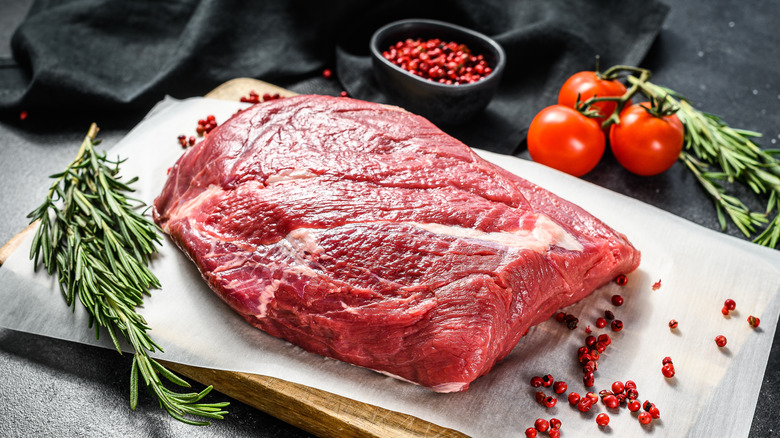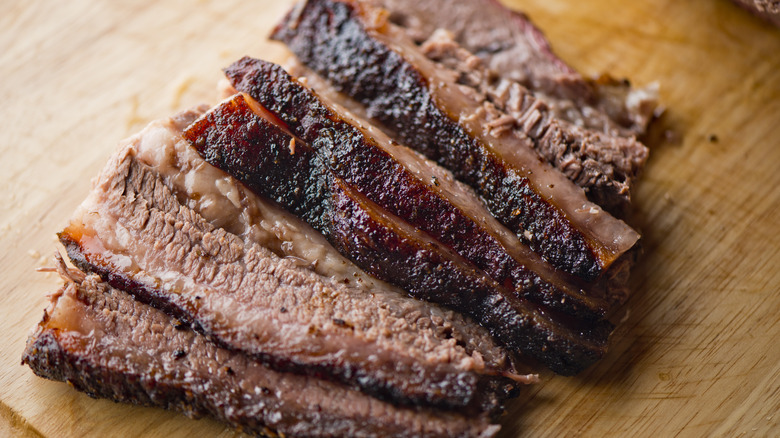Does Marbling Matter When Buying Brisket?
Cooking brisket, particularly smoking brisket, is a labor of love. It takes hours in the double digits, and when you're investing that much time and energy, you want the finished product to be worth the wait. Whether you're choosing a brisket for your Pesach (Passover) seder or simply for a backyard barbecue, knowing how to choose just the right piece of meat is critical.
If you're in a grocery store looking at briskets, you're going to find them in a variety of sizes and shapes. That's because a whole brisket, sometimes called a full packer brisket, according to Hey Grill Hey, weighs in at somewhere around 10-14 pounds. Briskets are typically broken down into two customary pieces: a flat brisket, which is — well — flat and is the smaller and leaner of the two cuts. There's also the point cut, which is thicker than the flat and also has a higher proportion of fat. Speaking of fat, many discussions of choosing beef, particularly steaks, focus on marbling, or the distribution of fat in a piece of meat. While marbling may be a key criterion for selecting a ribeye, does it really matter when you're buying brisket?
Does your brisket need to be perfectly marbled?
Food & Wine has a succinct answer to the question of whether a good brisket needs to be marbled: "Don't worry about the marbling." While a brisket certainly won't be as marbled as a good steak, that doesn't matter as long as you don't trim all the fat off the exterior of the piece of meat. Barbecue FAQ points out that even the flat, leaner brisket won't dry out as long as you don't trim off the fat cap since the rendered fat from the cap will keep the brisket moist as it cooks low and slow.
While Food & Wine says visible marbling isn't important, both Barbecue FAQ and Hey Grill Hey specify that USDA Choice or Prime grades of brisket are superior to Select because the former both have more fat and more marbling, which means a more tender brisket. While you may not — and don't actually need to — see visible marbling on your brisket, choosing the right grade of brisket will ensure it's there, ready to melt into the meat and turn it into braised or barbecued perfection.

